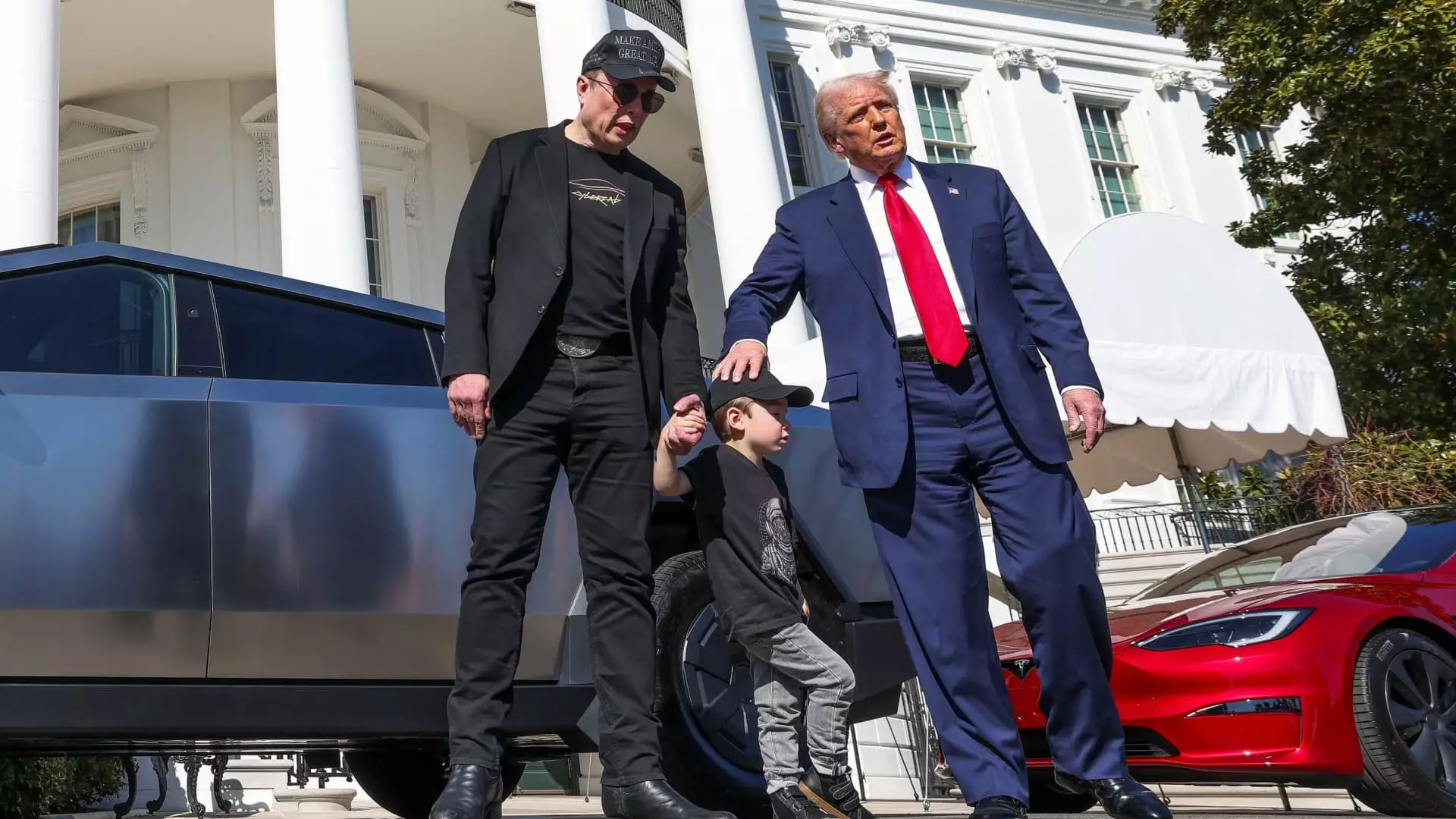In the ever-evolving arena of global trade, few figures command as much attention as Elon Musk. Known for his ambitious ventures and visionary ideas, Musk recently shared his candid views on tariffs during Tesla’s earnings call. His comments highlight a pervasive tension between American innovation and governmental policies that are often unpredictable and stifling. The crux of the matter? Tariffs that not only shape the economic landscape but threaten the very fabric of industries that rely on international supply chains.
Musk’s critique of high tariffs sends a clear message: they impede growth and create uncertainty. While he professes that the fate of such tariffs rests solely with the President of the United States, his openness about the adverse effects of these fiscal barriers speaks volumes. There’s an undeniable conviction in his voice when he suggests that tariffs should provide a predictable framework, not a chaotic battlefield fueled by whimsical decisions. This perspective draws attention to the growing sentiment among businesses that flourish under steady and transparent economic policies.
Tesla’s Competitive Edge Amidst Turbulence
Despite the ominous cloud of tariffs looming overhead, Musk maintains that Tesla is better positioned than many of its competitors. With localized supply chains across North America, Europe, and China, Tesla may feel somewhat insulated from the brunt of tariff impacts. This assertion raises an intriguing question: can localization serve as a buffer against the unpredictability of global trade? Musk’s confidence stems from this strategical alignment, yet it also underscores a larger issue—the increasing dependency on international resources.
While Musk describes Tesla as the “least-affected car company” regarding tariffs, an alarming reality lurks beneath this veneer of resilience. Tesla’s dismal quarterly earnings, including a staggering 20% drop in automotive revenue and a 71% plunge in net income, reveal the dark side of relying on international supply chains. Elon Musk’s clear acknowledgment of the challenges associated with sourcing materials from places like China and Mexico illustrates just how precarious Tesla’s position can be, especially in the face of aggressive tariff policies. This dichotomy between perceived strength and underlying vulnerability paints a complex picture of modern manufacturing.
The Struggle for Predictability in Trade
Musk’s call for predictable, lower tariffs resonates with a broader spectrum of concerns among businesses confronting international trade volatility. The environment is rife with uncertainty, where surges in tariffs could render competitive pricing unattainable. Musk’s discontent with the current state of affairs links directly to his advocacy for free trade—an ideal that promotes collaboration over isolation, stability over chaos.
In a world where trade wars threaten to splinter economies and dismantle collaborative frameworks, Musk’s remarks demand attention. His reference to “predatory” behavior from foreign governments suggests a recognition that not all players play fair. Yet, the challenge remains: how do nations strike a balance between protecting domestic industries and fostering international relationships?
Musk’s honesty in admitting that he provides advice to President Trump shows the intricate relationship between industry leaders and policymakers. His dissent regarding Trump’s trade advisor, Peter Navarro, serves as further evidence of the underlying discord regarding tariff strategies that could ultimately sabotage American companies. This candidness distinguishes Musk from many corporate leaders who often shy away from political entanglements.
A Glimpse into the Future
The future of Tesla and, by extension, American manufacturing hangs in a delicate balance. Musk’s acknowledgment of the strain tariffs place on Tesla’s energy production, particularly concerning lithium iron phosphate battery cells sourced from China, emphasizes the urgency for strategic pivots within the company. His ambition to localize production of these crucial components reflects a keen awareness of the implications of international trade policies on innovation.
However, Musk’s confident projections for local manufacturing reveal a paradox: while he envisions a future bolstered by American innovation, the path to realization is strewn with challenges, from establishing new supply chains to overcoming existing dependencies on foreign materials. Despite Tesla’s strides in vertical integration, the intricacies of global supply and demand loom large, reminding us that even the most innovative companies must navigate the unpredictable waters of international trade.
In closing, Musk’s candid takes on tariffs, trade, and domestic production illustrate the tumultuous landscape that companies like Tesla must navigate. His insights resonate not just within automotive circles but in broader discussions about economic strategies that could define the future of global commerce.



Leave a Reply